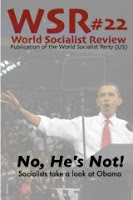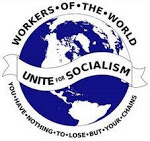
Business As Usual: The Economic Crisis And The Failure Of Capitalism by Paul Mattick. Reacktion Books: 2011.
Just yesterday, we were all supposed to believe that the globalisation of capitalism and free markets was the route to freedom, peace and prosperity for all. Then, with barely an explanation, and somewhat out of the blue, the story changed. Now we are to believe that, due to circumstances beyond anyone’s control, prosperity will have to give way to austerity. The good times are over.
It is characteristic of crises that the stories we are expected to believe suddenly change. But how can we understand the change? And might there not be better stories than the rather grim and gloomy one we’ve been ordered to swallow? Paul Mattick Jnr’s short book is just such an alternative. For him the crisis signals the complete bankruptcy and destruction of mainstream economics.
Why crisis is impossible
Why did the crisis appear as a bolt out of the blue? Why was it not expected or anticipated by any economist or mainstream commentator? In short, because there is no place in the standard economic story for crisis, any more than there’s a place for wizards and interstellar travel in a 19th-century realist novel. The old story goes something like this:
“Capitalism is a system for producing wealth to satisfy consumer needs. Individuals set up in business looking out only for their own interest, but in doing so produce for society. Only what can be sold will be produced; money will be borrowed, land rented and labour hired only because the resulting production meets a need. The money earned by selling one’s product will then be spent either on consumption or further production. The economy therefore tends naturally to a balanced state, in which all products find buyers. There may be momentary imbalances between supply and demand, but rising and falling prices soon take care of those. In this way, capitalism creates the wealth of nations, and all is well in the best of all possible worlds.”
No doubt the story sounds reasonable – it is, after all, part of our cultural inheritance, as familiar as Noah and his ark, Jesus and the wise men, Little Red Riding Hood and her granny. But there’s no room in this picture for the kind of crisis we’re currently living through. The crisis appears as a shock and is regarded as a mystery simply because there’s no framework within which it makes sense. We can understand that a very small scale ‘crisis’ will result if a business fails to meet consumer need: it may go bust, and this will be a crisis for those relying on that business for their living. But there’s no reason why this should cause much of a problem for the system as a whole – and economists never expect it to. Within the framework outlined above, there is no room for the sort of crises we actually see in the real world – society-wide and global crises where vast amounts of real wealth and the means of producing it (factories, mines, offices and so on) exist side by side with grinding poverty and unemployment. This kind of insanity makes no sense in terms of the story. Surely, great masses of wealth would just go to satisfy consumer demand? And if wealth outstripped consumer demand, then, well, great! The age of leisure and abundance, long promised by capitalism, would finally be upon us, and we could collectively lay back and enjoy it.
Unable to find a satisfying explanation from within the story, the storytellers are obliged to smuggle in some bogeymen from the wings. The balance we expect from the story is then upset by one of various villains, which one depending on the predilections of the storyteller: state interference or largesse, insufficient (or too much) regulation, greed, and so on. Quite why these things sometimes cause a crisis and sometimes not when they’re always lurking in the wings is left unexplained.
Why crisis is inevitable
However, there are some thinkers, Mattick among them, who were not at all surprised by the crisis. This is not, as Mattick says at the start of his book, because they are cleverer than the mainstream storytellers. Nor have they access to more or better information – in fact, for the most part, rather the opposite. Instead it is a matter “of knowing how to think about what is going on”. Or, in the terms we’ve introduced in this article, of having access to better stories – stories that capture what’s actually going on in the real world. Here’s Mattick’s story:
“Capitalism is not primarily a system for producing wealth to meet consumer demand, but for making money. This is what business is all about: using money to make more money. The capitalist (or, increasingly, a capitalist institution subsidised and backed by the state) starts off with a sum of money, which he throws into circulation in the expectation that it will return to him as a greater sum than he started with. To this end, the capitalist buys means of production and labour power on the market, then puts these to work to produce goods, which he then takes to market in the expectation not just of sales, but of profits. If he is successful in his aim, and if he is to remain a capitalist and keep up with the competition, he must reinvest at least a portion of that profit in yet more production, buying yet more labour power and means of production, to produce yet more wealth and, potentially, money profits. And then the cycle begins again, on an ever-expanding scale.”
The motive here is not the satisfaction of consumer need – a relatively straightforward matter – but the production and appropriation of profits on an ever-expanding scale – a much more tricky thing to achieve. And as the production of social wealth increasingly takes on this capitalist character, the production of the things we need increasingly relies not on our need for them, nor on our ability to produce them, but on the ability of capitalists to make profits from the whole process. When they cannot make or do not expect to make a profit from production, or when they produce too much to sell profitably, they will not invest in production, but in speculation, or will not invest at all, and hoard money. This can affect not just their own line of business, but the whole system of wealth production. Crisis, in this view, is not caused by any bogeyman in the wings, but is a necessary result of the process itself.
What’s the answer?
Once we’ve understood this story, our expectations are turned on their head. We are no longer shocked by capitalism’s periodic crises, but expect them. The question then is, do we really need to forever make our lives hostage to capitalist profit; or might we be able to do things in a different way? In the mainstream, the debate over how to resolve the crisis is between two alternatives. The first is to just let things collapse so the economy undergoes the necessary correction, restoring profitability and eventually returning the system to business as usual. The second is that the central banks should continue to print money and the state bail-out bankrupt banks and countries and so on, so that ‘business as usual’ is not disrupted by potentially catastrophic upheavals (as was the case in the Great Depression of the 1930s). The debate is between the needs of business, on the one hand, and the need to preserve social cohesion (for the needs of business) on the other. Businessmen and policy-makers are damned if they do, and damned if they don’t. But what are usually thought of as ‘socialist’ alternatives are unlikely to work either – history has shown that reformist social democracy and ‘communist’ central planning have been no better at controlling capitalism’s crises than anything else. It’s no good, says Mattick, demanding jobs from a system that would happily give us the jobs if it could.
If there’s hope, it’s in the belief that human beings will eventually tire of walking into brick walls and begin to look for a door. If you have a concern that produces socially necessary goods or services, on the one hand, and poor and unemployed people on the other, and there is no way of putting the two together in a way that produces profits for owners, then that’s what capitalism calls a crisis. The solution – bringing workers, the unemployed, the poor and the means of producing wealth together, not in order to make profits, but to provide for need – is called socialism.
The story has a name
We’ve left the name of this alternative story till the end because it is liable to scare unwary readers. That’s because, in the standard story, it’s portrayed as one of those bogeymen waiting in the wings. The name is Marxian socialism. Mattick’s is the second major book from a Marxist thinker to appear since the onset of the crisis (the first was David Harvey’s Enigma Of Capital, favourably reviewed in the June 2010 Socialist Standard). And we highly recommend it – it’s a brilliantly comprehensive and yet miraculously short history and analysis of capitalist crisis. The Marxists associated with this journal will have their differences with the details of Mattick’s account. In particular, we would say he puts too much emphasis on Marx’s law of the tendency of the rate of profit to fall, and throws the baby out with the bathwater when he rightly rejects the old left but places his faith seemingly more in the spontaneous appearance of mutual aid and communist formations than in working-class political organisation. But what’s more important than the minor disagreements is the framework that Marxism provides for understanding what’s going on in the real world, and for that, Mattick’s book is an essential guide.
STUART WATKINS



